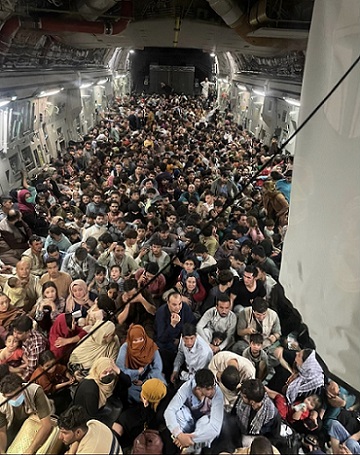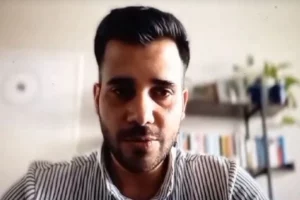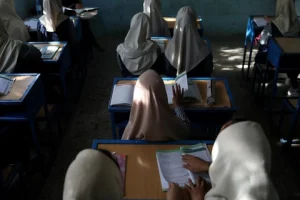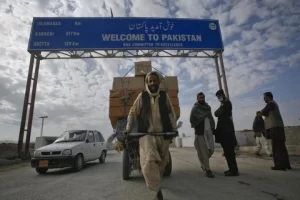With thousands of civilians fleeing Afghanistan following the takeover of Kabul by the Taliban, several countries in Europe and Central Asia are bracing themselves for an unimaginable refugee crisis in the coming months.
As the dramatic scenes of Afghans clinging on to a moving US Air Force jet at Kabul's Hamid Karzai International Airport are still being played out in an endless loop on television screens all over the world, heated debates on immigration policies for asylum seekers have also flared up in many nations.
The United Kingdom government on Wednesday announced a resettlement scheme for Afghan refugees to resettle 5000 Afghan nationals, who are at risk due to the current crisis, in its first year.
"Priority will be given to women and girls, and religious and other minorities, who are most at risk of human rights abuses and dehumanising treatment by the Taliban," the UK government said while elaborating that the resettlement scheme will be kept under further review for future years, with up to a total of 20,000 in the long-term.
However, British Prime Minister Boris Johnson, who addressed Parliament on the issue Wednesday afternoon, is already in line of fire for mismanaging the withdrawal of troops from Afghanistan.

While Scotland's first minister Nicola Sturgeon has urged the UK government to go further on Afghan resettlement scheme – just 5000 this year is "woefully inadequate", she said – the Scottish National Party leader Ian Blackford has labeled the crisis in Afghanistan as the "biggest policy failure" of the Johnson government.
"There can now be little doubt that the chaos and crisis being inflicted upon the Afghan people is the biggest foreign policy failure of modern times. Boris Johnson must, for once, show leadership on this. Scotland is willing and ready to play our part," tweeted Blackford.
Refugees, asylum-seekers, and all those who fled Afghanistan should not be forced to return. pic.twitter.com/KqvNvJDBHU
— UNHCR, the UN Refugee Agency (@Refugees) August 18, 2021
After finding innumerable Afghan civilians trapped in highly volatile situations, UNHCR, the UN Refugee Agency, has also issued a non-return advisory for Afghanistan, calling for a bar on forced returns of Afghan nationals, including asylum seekers who have had their claims rejected.
The UN agency said that states have a "legal and moral responsibility" to allow those fleeing Afghanistan to seek safety, and to not forcibly return refugees. Since the beginning of 2021, more than 550,000 Afghans have been internally displaced as a result of conflict and insecurity, a number which is expected to rise hugely in the coming months.
Germany, Denmark and the Netherlands, who had sent a joint letter with Austria, Belgium and Greece to the European Commission on August 5 urging it to keep the deportation process on, have now suspended the operation of sending Afghan asylum seekers back home.
However, other countries, including Austria, have made it clear that they are in no position to take in asylum seekers. Austria's Interior Minister Karl Nehammer and Foreign Minister Alexander Schallenberg have said that deportation centers in the region around Afghanistan should be explored after the Taliban takeover.
"The thugs are doing the business of their year. Especially if a residence permit is considered safe in Central Europe. We must now take a firm stand against organized crime and make aid in the neighboring countries of Afghanistan a priority. So that people don't go out and apply for asylum in Austria," Nehammer told Kleine Zeitung, the largest regional Austrian newspaper.
"We are in close contact with the government agencies in Kabul and plan to carry out deportations… We are working on a flight – in cooperation with Afghanistan. If such a thing becomes possible, then we will too. And if that doesn't work, we have to think about alternatives. The European Convention on Human Rights remains the guideline," he added.
While a virtual meeting of the G7 leaders on the Afghan issue is scheduled in the coming days, the Austrian minister also called for a meeting of EU foreign and defence ministers to debate on the issue.
France, which has launched evacuation operations for people of both French and Afghan nationality who had taken refuge in the French Embassy building in Kabul, said that it is "proud to welcome Afghan civil society which is fighting for freedom" and will continue to help those in need of protection.
While the system to identify and resettle those Afghans who are most at risk will take a long time to develop, the politics over offering sanctuary to them amid debates on national security has already begun.
All this as a massive humanitarian catastrophe unfolds in Afghanistan.
Also Read: Wary of a guerrilla war, Taliban asks civilians to handover their weapons




















